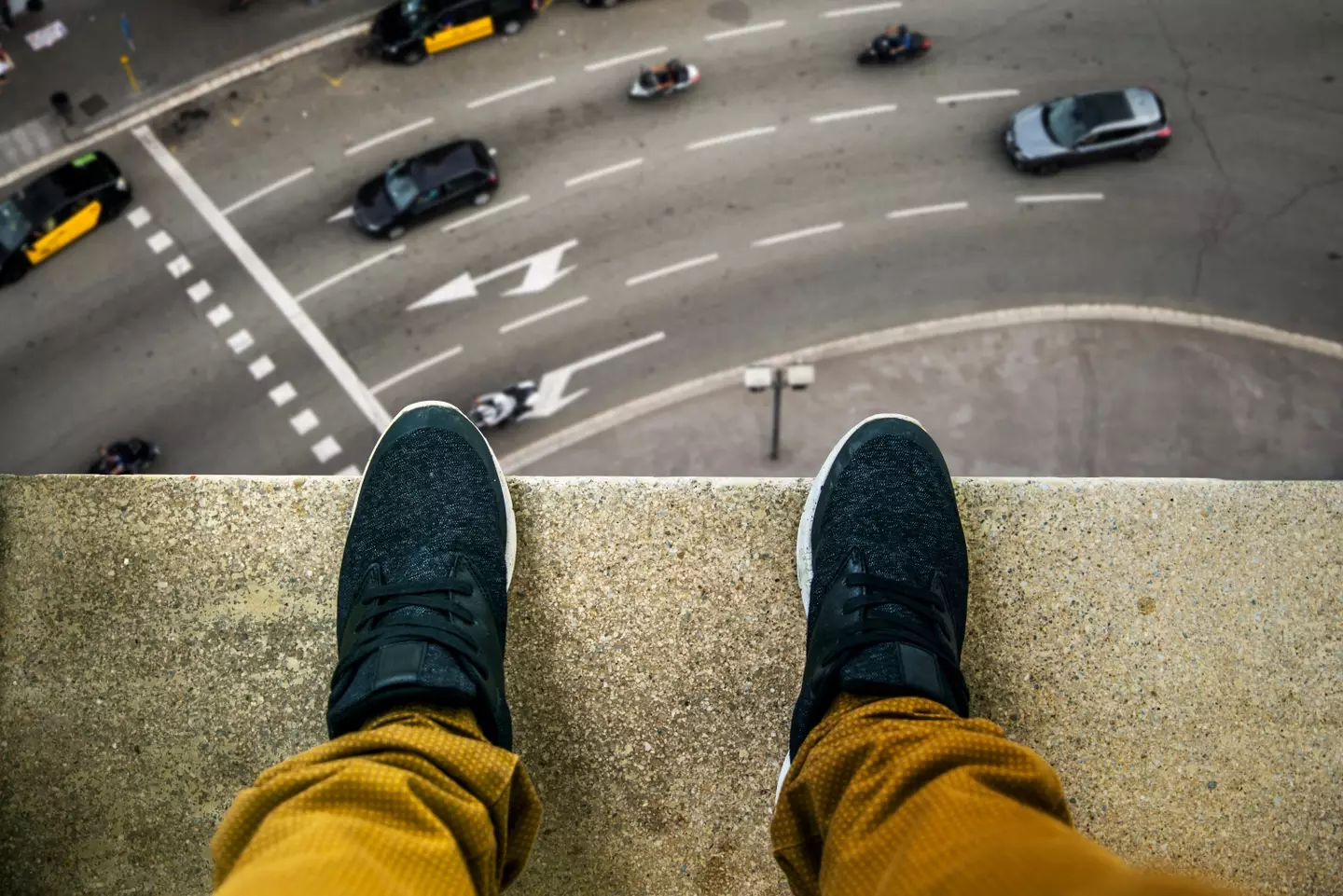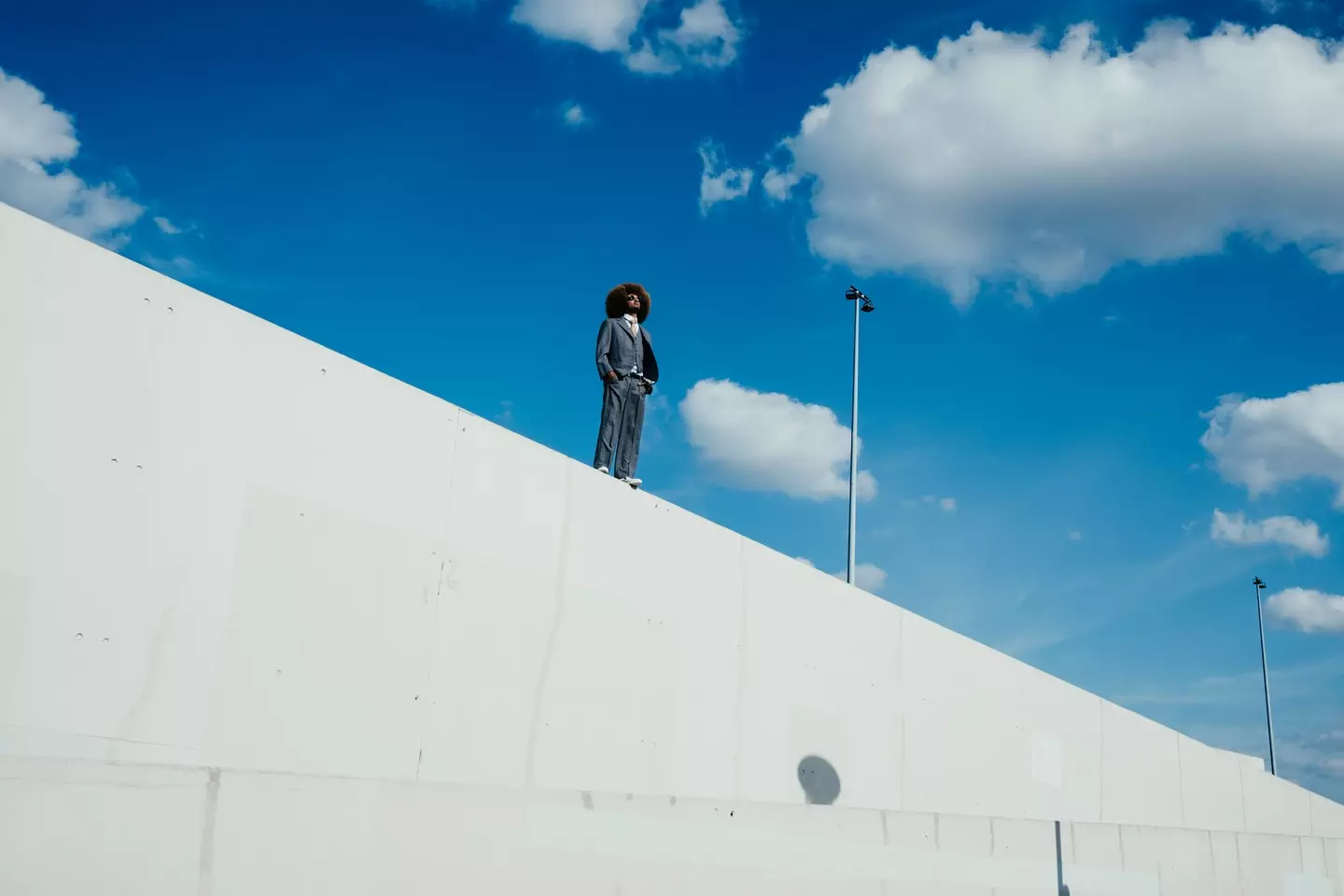
Warning: This article mentions suicide which some readers may find distressing.
There's a terrifying scientific reason as to why people feel the urge to jump when standing in high places.
Have you ever been - oh I don't know - standing on the edge of a cliff, on a balcony or at the side of train tracks and just got the overwhelming urge to... jump off?
No? Me neither.
Advert
No but seriously, we've all been there - it's not like we have a desire to actually act on it, but there's something about standing on the edge that just makes us wonder, what if?
If you have felt this way, the good news is that you are not alone, and it's actually quite a common phenomena that science has a reason for.

What is the phenomena called?
If anyone is going to have an eloquent expression for something rather scary, it's going to be the French, who have coined the term 'l'appel du vide' for the rather out of character phenomena.
As pretty as it sounds in French, it doesn't sound so great in English and, in fact, translates to 'the call of the void.'
Yikes.
Luckily, scientists have a rather obvious name for it and call it 'the high place phenomenon.' Now that's much easier to swallow.
What does science say about it?
Two studies have been carried out, delving into the phenomena with the first taking place in 2012.
It surveyed 431 undergrads and found that just over half - who had no prior suicidal ideation - had experience 'l'appel du vide'.

Unfortunately, over 75 percent of those who had considered suicide before had also experienced the urge to jump.
The study was published in the Journal of Affective Disorders.
According to the study, it proved that regardless of having had suicidal ideation or not, there was no exclusive link between that and experiencing the phenomena, and that there was a difference between imagining jumping and actually acting on it.
So, why do we experience it?
Researchers, in fact, think that the so-called 'call of the void' is our brains way of warning us away from danger and labeled it a 'misinterpreted safety signal', and the results of their research seem to support the theory.
The study also revealed that those with higher anxiety levels are more like to feel the call of the void than those with lower levels of anxiety.
The study's lead researcher, Jennifer Hames, believes it might be a person's subconscious trying to get them to appreciate 'what it feels like to be alive'.
Surely there are easier ways to do it, no?

What else has been said about 'the call of the void'?
Another more recent study from 2020, published BMC Psychiatry, delve further into whether those who have suicidal thoughts were more likely to experience 'the call of the void', as there was worry it could be signally something worrying about their mental state.
"In our outpatient clinic, people repeatedly presented themselves with the question of whether they were suicidal," Tobias Teismann study lead researcher told Live Science.
"On the one hand, they were very attached to life, but on the other, they often felt the impulse to jump down somewhere or steer their car into oncoming traffic. I know the phenomenon myself, having felt it in my early 20s, so I knew studying it would be fascinating and clinically relevant."
"The phenomenon is more often reported by people who react to body signals rather anxiously," he explained. Teismann also doesn't believe there is a link between those who have experienced the call and wanting to actually harm yourself.
"It seems to be something known to many people regardless of suicidality and anxiety.
"As such, it is normal, and not a sign of psychopathology."
Teismann also summarized that we shouldn't see the call as something expresses a 'hidden death wish'.
If you or someone you know is struggling or in crisis, help is available through Mental Health America. Call or text 988 or chat 988lifeline.org. You can also reach Crisis Text Line by texting MHA to 741741.
You can also call 1-800-985-5990 or text “TalkWithUs” to 66746 at the SAMHSA Disaster Distress Helpline.
Topics: Mental Health, Science, Education